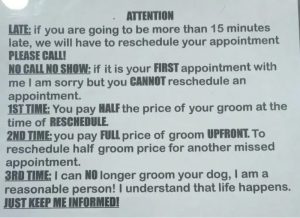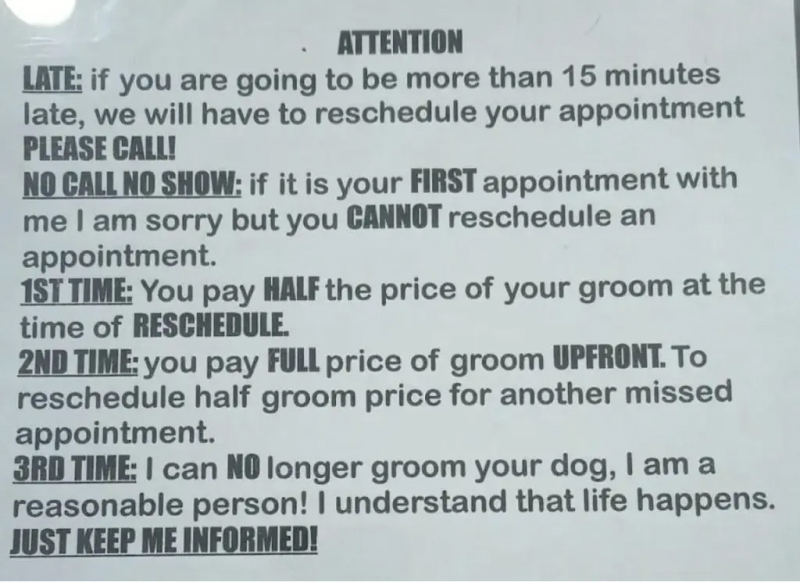Working parents need an emergency childcare plan to deal with unforeseen occurrences and avoid stressful situations. Focusing at work can be hard when dealing with an emergency, negatively affecting productivity. While emergencies are unpredictable, you can manage them with a good plan. What is emergency childcare, and why is it important?
What is Emergency Child Care?
Emergency childcare is a service that enables working parents or guardians to arrange care for their children in case their regular care routine is disrupted. This service comes in handy to relieve stress while minimizing interference to the working schedule. Emergency childcare allows working parents to find a backup solution quickly, whether the school is cancelled unexpectedly, children get sick, or the nanny doesn’t report to work.
What are the Business Benefits of Emergency Child Care?
Some companies offer emergency childcare for their employees. Doing so helps workers manage childcare challenges without being absent, maximizing their productivity. Further, providing emergency childcare perks helps develop an employer’s reputation as a family-friendly brand.
Explain the Importance of Emergency Childcare

The benefits of emergency childcare services for employers and employees include:
· Increased Productivity
Emergency childcare is critical in reducing workplace disruptions due to unforeseen occurrences at home or school.
· Better Recruitment
Employees value childcare, meaning they will be attracted to employers who offer emergency childcare services, especially if they want to start a family or are young parents.
· Enhanced Retention
Working parents with an emergency childcare plan, especially from their employers, are highly likely to work with the company longer. They don’t have to leave the company for a more considerate and family-oriented employer or to care for their children. Retaining employers save businesses from spending colossal amounts of money training new employees.
· Enhanced Performance
Having guaranteed emergency childcare services allows working parents to be more productive at their workplaces.
· Reduced Stress
Being assured of emergency childcare gives working parents peace of mind, allowing them to focus on their work and get the desired results.
Emergency Childcare Planning
Having a well-thought-out emergency childcare plan in place can provide peace of mind and ensure your child’s safety during challenging times. Here are some essential steps to create a comprehensive emergency childcare plan.
1. Identify Emergency Contacts
Begin by compiling a list of trustworthy individuals who can step in to care for your child in case of an emergency. These contacts should be readily available and willing to help at a moment’s notice. Include family members, close friends, neighbors, and even coworkers you trust.
2. Gather Medical Information
Create a document that includes your child’s medical history, allergies, and any existing medical conditions. Make copies of their insurance card, vaccination records, and a list of medications they are currently taking. Ensure this information is up to date and easily accessible in case medical care is required during the emergency.
3. Create an Emergency Contact Sheet
Prepare an emergency contact sheet that lists all essential information regarding your child’s care. Include the following details:
- Child’s full name and date of birth
- Your contact information
- Contact information for emergency contacts
- Names and contact details of your child’s healthcare providers
- Any specific instructions or allergies
- A copy of any legal documents, such as custody agreements or medical consent forms
4. Establish a Communication Plan
It’s crucial to have a communication plan in place to notify all relevant parties about the emergency and your childcare arrangements. This plan may include:
- Informing your child’s school or daycare provider
- Notifying your employer about your absence and the reason
- Ensuring your emergency contacts are aware of their roles
- Providing a timeline for when you expect to return
5. Legal Considerations
Depending on your circumstances, you may need to complete certain legal documents to authorize emergency caregivers to make medical decisions for your child. Consult with an attorney if necessary to draft:
- A medical consent form
- A temporary guardianship or power of attorney document
6. Child Comfort and Routine
Transitioning to emergency childcare can be challenging for children, so it’s essential to make the process as smooth as possible. Pack a “go bag” with familiar items such as their favorite toys, comfort items, and a change of clothes. Include any necessary toiletries and medications.
7. Regularly Update Your Plan
As your child grows and circumstances change, revisit and update your emergency childcare plan as needed. Ensure that contact information remains accurate and that your child’s medical information is up to date.
8. Test Run Your Plan
Consider conducting a practice run of your emergency childcare plan with your chosen caregivers. This exercise can help identify any gaps or issues in your plan, ensuring that everyone knows their role and responsibilities.
Highlight the Challenges Parents Face when Unexpected Situations Arise

Working parents understand that managing parenting and their professional responsibilities can be challenging. Emergencies can worsen the situation further. Here are some of the challenges parents deal with.
· Being Out of the Office when Children Get Sick
Parents with young children know how unpredictable they can be. Whether your child wakes up with a fever or gets sick while in school, you may need to remain at home or leave your workplace to attend to the child. When emergencies occur, they disrupt a working parent’s schedule and can negatively affect their performance at work.
· Having an Emergency Before a Presentation
Sometimes emergencies occur at the most crucial times. For example, a parent is about to enter a room for a critical presentation. Suddenly they receive a call from the school nurse. Such disruptions can affect the parent’s performance in the presentation. They might either become anxious or even forget what they had to say.
· Missing out on Children’s Crucial Events
Every parent wants to be present to celebrate their children when they attain certain milestones. Whether it’s their birthday, first concert at school, or graduation, missing your child’s important events can make you guilty.
As much as you can’t avoid the guilty feeling, experts encourage parents to focus on empowering thoughts unsteady of feeling guilty. For example, consider how much of a role model you are to your child. Read about the importance of having working parents for children and find a way to participate even in absentia.
· When Children are Restless, Forcing Parents to Stay Home
Children, especially young babies, can often be overly restless, forcing parents to stay home and watch over them. Whether the cause of restlessness is sickness or discomfort, the parent may need to visit the doctor to be sure the child is okay. When this happens, parents with no emergency childcare plan must miss or get late for work, affecting their productivity.
Identifying Your Needs
Parents trust childcare providers to care for their kids and keep them safe during emergencies. Here are various things to consider when choosing an emergency childcare provider.
· What Kind of Emergency are you Facing?
Common childhood emergencies that parents should be wary of when choosing an emergency childhood provider include:
- Burns
- Scratches or cuts
- Broken bones, fractures, or sprains
- Poisoning
- Choking
- Objects stuck in the ears or nose
The emergency childcare provider you choose must be conversant with these emergencies and understand how to manage them.
· What Kind of Childcare do you Need?
Childcare services can either be full-time or part-time. These include:
- Daycare
- Childminders
- Preschool care
- Afterschool care
- Au pairs and nannies
- Babysitters
- Playgroup
What are Your Expectations for a Caregiver?
Some of the reasonable expectations you can have for your caregiver include the following:
- Being actively engaged and attentive. Let them understand the importance of disconnecting from the outside world while caring for your child. Thoroughly focusing on your child guarantees their safety while enabling them to make informed decisions in the case of an emergency
- Be reliable and professional, and maintain cleanliness. The childcare provider should keep time, be neatly dressed, and be prepared to adhere to the stipulated schedule.
- Be comfortable assisting with personal needs and hygiene. Young children need assistance with personal care. Your caregiver should be comfortable bathing, dressing, toileting, grooming, and caring for their overall personal hygiene.
- The ideal caregiver must possess excellent communication skills.
How to Choose Right Emergency Childcare Provider
Choosing the right emergency childcare provider is crucial for the safety and well-being of your child. Here are some essential steps to help you make an informed decision:
· Research Local Options
Start by researching emergency childcare providers in your area. Look for licensed facilities or reputable in-home providers that have experience in emergency childcare.
· Check Credentials and Certification
Ensure that the provider has the necessary credentials and certifications. For childcare centers, check if they are licensed by the appropriate authorities.
· Read Reviews and Testimonials
Look for online reviews and testimonials from other parents who have used the provider’s services. Positive feedback from satisfied parents can be an indicator of a reliable childcare provider.
· Conduct Interviews
If possible, schedule interviews with potential emergency childcare providers. Ask about their experience, emergency protocols, and how they handle challenging situations. Pay attention to their communication style and whether they are responsive and attentive to your questions.
· Visit the Facility
If you are considering a childcare center, visit the facility in person. Observe the environment, cleanliness, and safety measures they have in place. Check if they have age-appropriate toys, first aid kits, and fire safety equipment.
· Verify Background Checks
For in-home emergency childcare providers, ensure they have undergone thorough background checks. Request references and contact previous families they have worked with to learn about their experiences.
· Emergency Procedures
Inquire about the provider’s emergency procedures, such as evacuation plans, medical protocols, and communication methods in case of an emergency.
· Trust Your Instincts
Trust your gut feeling about the provider. If something doesn’t feel right or you have concerns, don’t hesitate to explore other options.
· Seek Recommendations
Ask for recommendations from friends, family, or coworkers who have used emergency childcare services. Personal referrals can provide valuable insights into the quality of care.
· Trial Period
If possible, consider a trial period where your child spends a short time with the emergency childcare provider. This allows you to assess how well they adjust and interact with the caregiver.
Types of Emergency Childcare Services

Emergency childcare services come in various forms to address the urgent needs of parents and guardians during critical situations. In-home childcare options offer immediate support through trusted family members, friends, or on-call nannies who can step in when unexpected emergencies arise.
Community-based childcare centers also play a crucial role by collaborating with local organizations and schools to provide safe havens for children during disasters or unforeseen circumstances. These centers may offer emergency drop-in services, ensuring parents have access to reliable childcare even at short notice.
Understanding the different types of emergency childcare services is essential in building a comprehensive support system that prioritizes the well-being of children and empowers parents to navigate challenging situations with greater confidence.
Ensuring Safety and Quality in Emergency Childcare
Ensuring safety and quality in emergency childcare is paramount to providing a secure haven for children during critical times. Caregivers must undergo thorough screening and training, including background checks and certifications, to guarantee their suitability for the task.
Implementing strict safety protocols and emergency preparedness plans is essential to address potential risks and ensure a swift response in crisis situations. Moreover, caregivers should be well-versed in handling children with specific needs or medical conditions. By adhering to rigorous health and hygiene guidelines, including measures during outbreaks, emergency childcare centers can safeguard the well-being of children under their care.
Emphasizing safety and quality gives parents peace of mind and fosters a nurturing environment where children can feel protected and supported during challenging circumstances.
The Emotional Impact of Emergency Childcare
Emergency childcare plays a crucial role in supporting working parents during unexpected and challenging situations. However, its impact extends beyond logistical convenience, as it can evoke a range of emotions for both parents and children. Parents may grapple with feelings of guilt and anxiety when needing to rely on emergency care, worrying about their child’s well-being and their ability to fulfill their parental duties.
Meanwhile, children may experience separation anxiety and uncertainty in new caregiving environments. Despite these emotional challenges, emergency childcare also brings relief and gratitude, providing a lifeline during critical times. Acknowledging and addressing these emotions is essential for parents to navigate emergencies with resilience and seek the support they need to strike a balance between work and family obligations.
Evaluating Your Options
Once you have narrowed down your options, you must analyze them before choosing your most preferred one. You can do so by:
· Conduct a phone or in-person interview with potential caregivers
Always interview potential caregivers before hiring them. Doing so helps you determine their ability to meet your needs.
· Ask for references and check them
Call potential emergency childcare providers and call them to determine what to expect before hiring.
· Consider the caregiver’s experience, qualifications, and personality
These characteristics are critical in ensuring your caregiver provides the best services based on your needs.
How to Find Help When You Need It Most
Finding emergency childcare when you need it most can be a stressful situation, but there are several steps you can take to secure the help you need. Here’s a guide on how to find emergency childcare:
· Assess Your Situation
Determine the nature of the emergency and the duration for which you need childcare. Is it a one-time occurrence, a short-term need, or a more extended period?
· Family and Friends
Reach out to close family members, friends, or neighbors who might be able to help on short notice. They might be willing to step in temporarily.
· Childcare Networks and Groups
Check if there are local childcare networks, parent groups, or online communities where you can ask for recommendations or assistance. Local parenting forums can be helpful.
· Local Childcare Centers
Contact local daycare centers, preschools, or after-school programs to inquire about availability for emergency situations. Some centers might have drop-in options or be able to accommodate temporary needs.
· Nannies and Babysitters
Reach out to local nannies, babysitters, or childcare providers who offer on-call or short-term services. Many professionals are flexible and might be willing to assist during emergencies.
· Emergency Backup Care Services
Some areas have specialized emergency backup care services that cater to last-minute childcare needs. Research if such services are available in your region.
· Employer Assistance
Check if your employer offers any emergency childcare benefits or services. Some companies partner with childcare providers to offer assistance to employees in crisis situations.
· Childcare Agencies
Contact local childcare agencies that specialize in connecting families with reliable caregivers. They may have resources for emergency situations.
· Schools and Community Centers
Inquire with local schools or community centers if they offer emergency childcare programs or have recommendations for temporary care.
· Healthcare Facilities
If the emergency is related to a medical situation, hospitals or healthcare facilities may offer childcare services for patients and families during treatment.
· Online Platforms
Utilize social media platforms, local community forums, or apps to seek assistance from parents who might be able to help in a pinch.
· Plan Ahead
While you’re dealing with the current emergency, consider creating a plan for future situations. Identify potential emergency childcare options, contacts, and resources you can turn to if needed.
· Background Checks and References
Ensure that any potential caregivers have appropriate background checks, references, and relevant experience before entrusting them with your child.
· Communication
Clearly communicate your child’s needs, routine, and any special requirements to the temporary caregiver. Provide emergency contacts and medical information.
· Financial Considerations
While emergency situations often require quick solutions, be prepared for potential costs associated with emergency childcare services.
Remember that in emergency situations, it’s essential to prioritize your child’s safety and well-being. Always trust your instincts and take the necessary precautions when selecting a temporary caregiver.
Preparing for Emergencies

Being prepared for an emergency reduces anxiety and fear while helping you know how to manage the situation fast. Everybody should know what to do in an emergency to increase their chances of safety. Here are some emergency preparedness tips.
· Create an emergency plan and share it with your caregiver
A simple plan should include phone numbers and people to call in an emergency. Ensure they have access to medical cards for all your children and an authorization letter to seek medical care for your child in an emergency. Write the direction and address to the local hospital and ensure the emergency childcare provider is conversant with the area.
· Provide crucial information about your child’s medical history and routine
Create a list of medications your child may be on and their dosages and ensure your carer can easily access them.
· Make sure you have the necessary supplies and equipment on hand
Have a first aid kit within easy reach.
Conclusion
Managing family emergencies as a working parent can be challenging. However, having the right emergency preparedness plan can go a long way in guaranteeing the safety of your children. Preparing for an emergency gives you peace of mind to continue working while your caregiver manages the situation. What emergencies have you experienced before? What lessons did you learn from them? We would appreciate a few tips from you. Kindly share them with us and add on to our list.
Image Credit:
- Image by stefamerpik on Freepik
- Image by Freepik
- Image by Freepik
- Image by tonodiaz on Freepik
















